What is a stablecoin?

A stablecoin is a cryptocurrency linked to a reserve asset like the U.S. dollar or gold.
Aims to maintain a relatively stable value, making it a more reliable tool for payments and transfers compared to volatile cryptocurrencies.
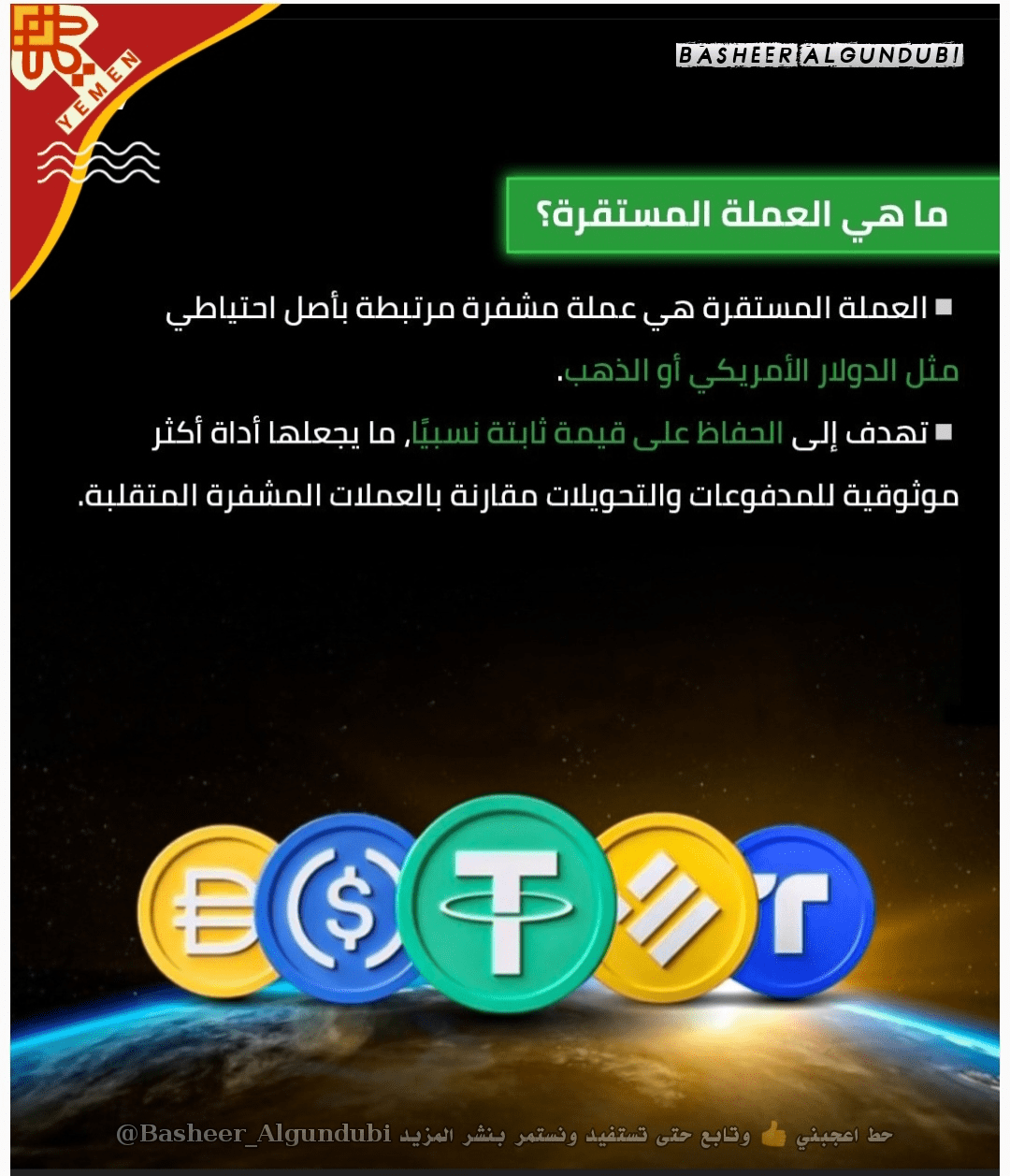
The difference between it and other cryptocurrencies.
Cryptocurrencies like Bitcoin have highly volatile values.
Stablecoins: maintain a price close to the asset they are linked to.
Thus, it is widely used in trading transfers and payment services.
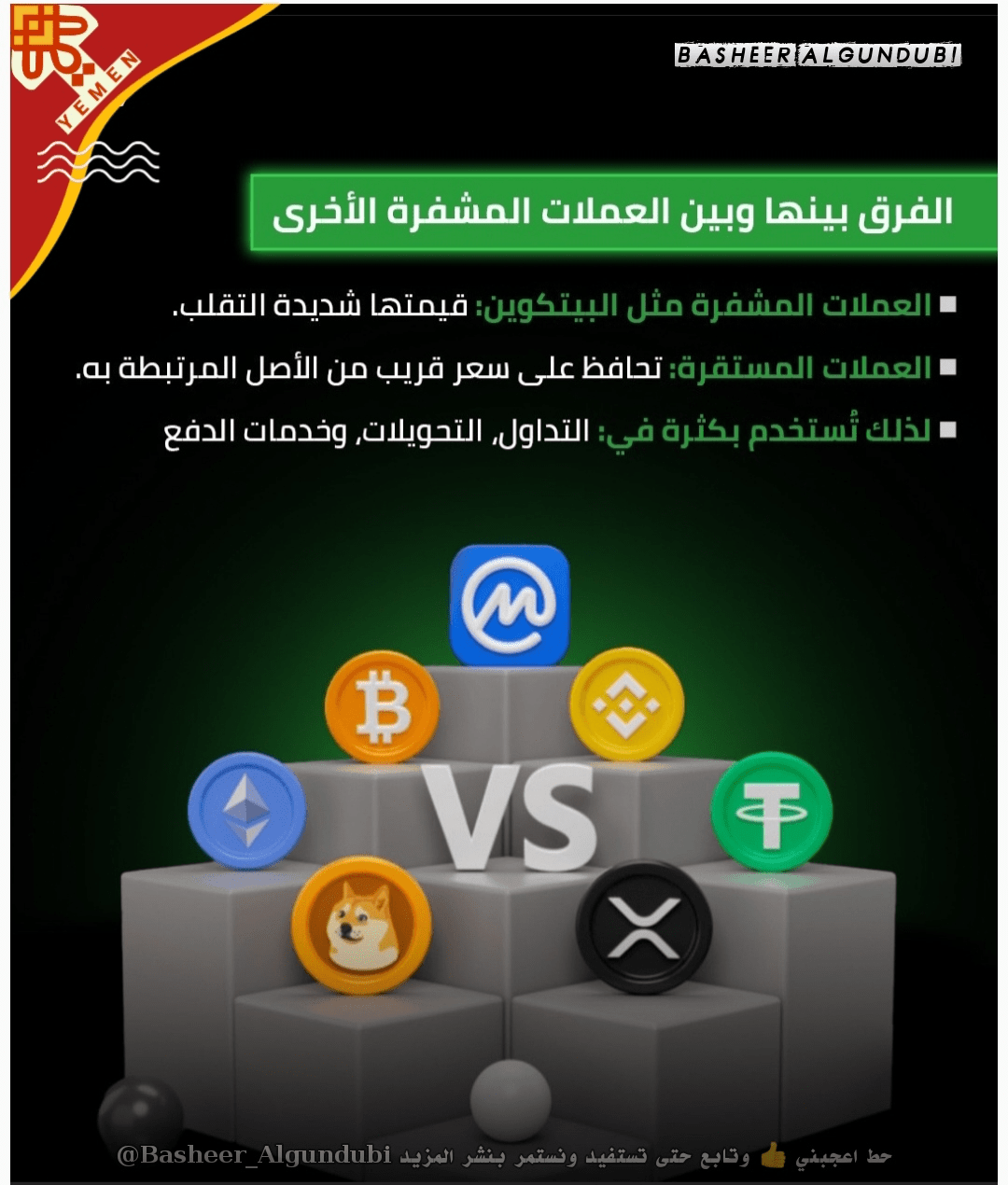
Types of stablecoins:
1- Backed by fiat currencies (like USDT and USDC).
2- Backed by crypto assets (like DAI).
3- Backed by algorithms that control supply and demand.
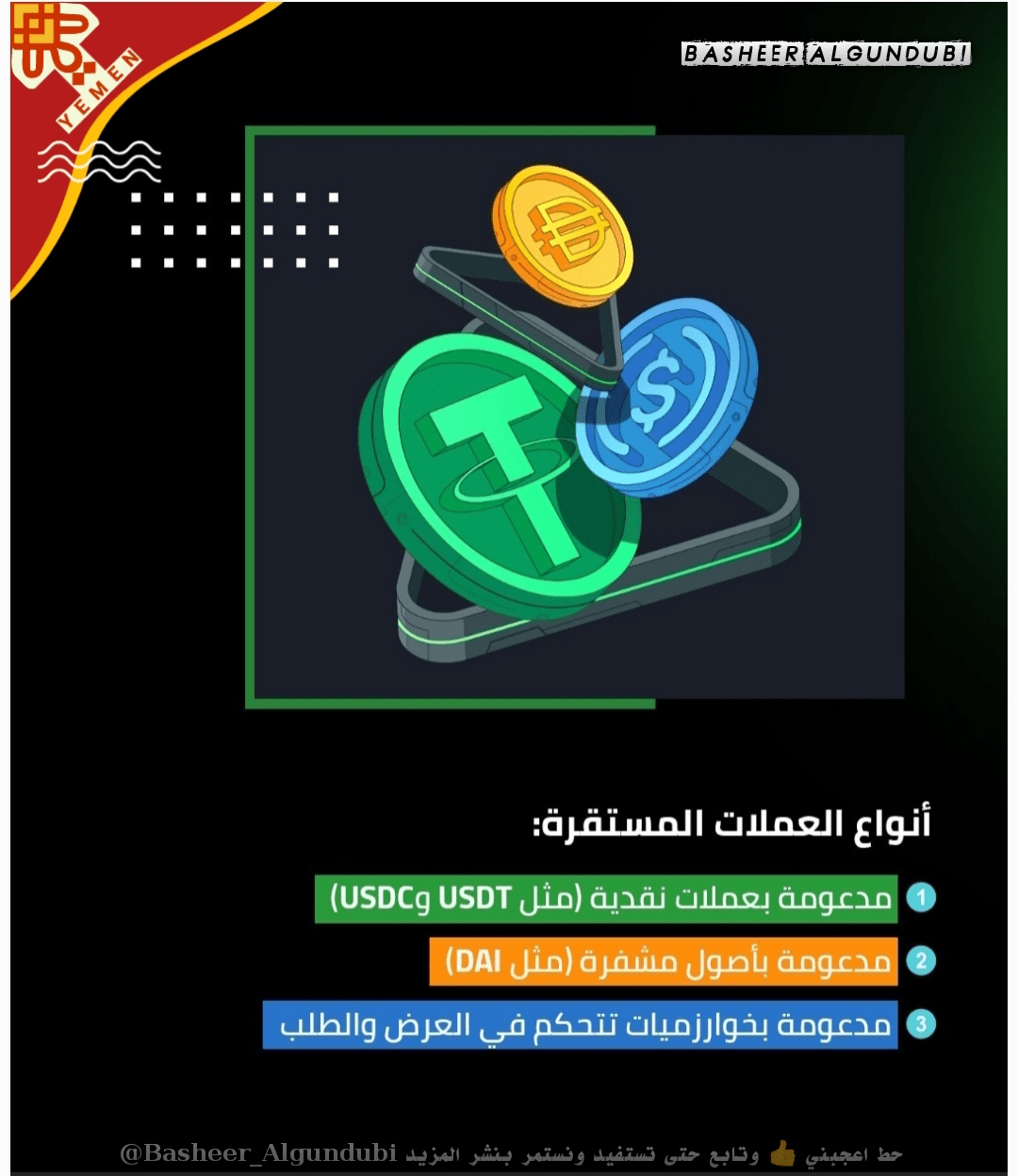
Numbers and facts.
Stablecoins emerged in 2014.
In 2024, the volume of its transfers reached $27.6 trillion.
Tether (USDT): its market value exceeds $143 billion.
Coin: USDC: worth over $58 billion.
Why is its usage increasing?
Stability in value.
Low transfer fees.
Speed of transaction execution.
Financial accessibility for those without bank accounts.
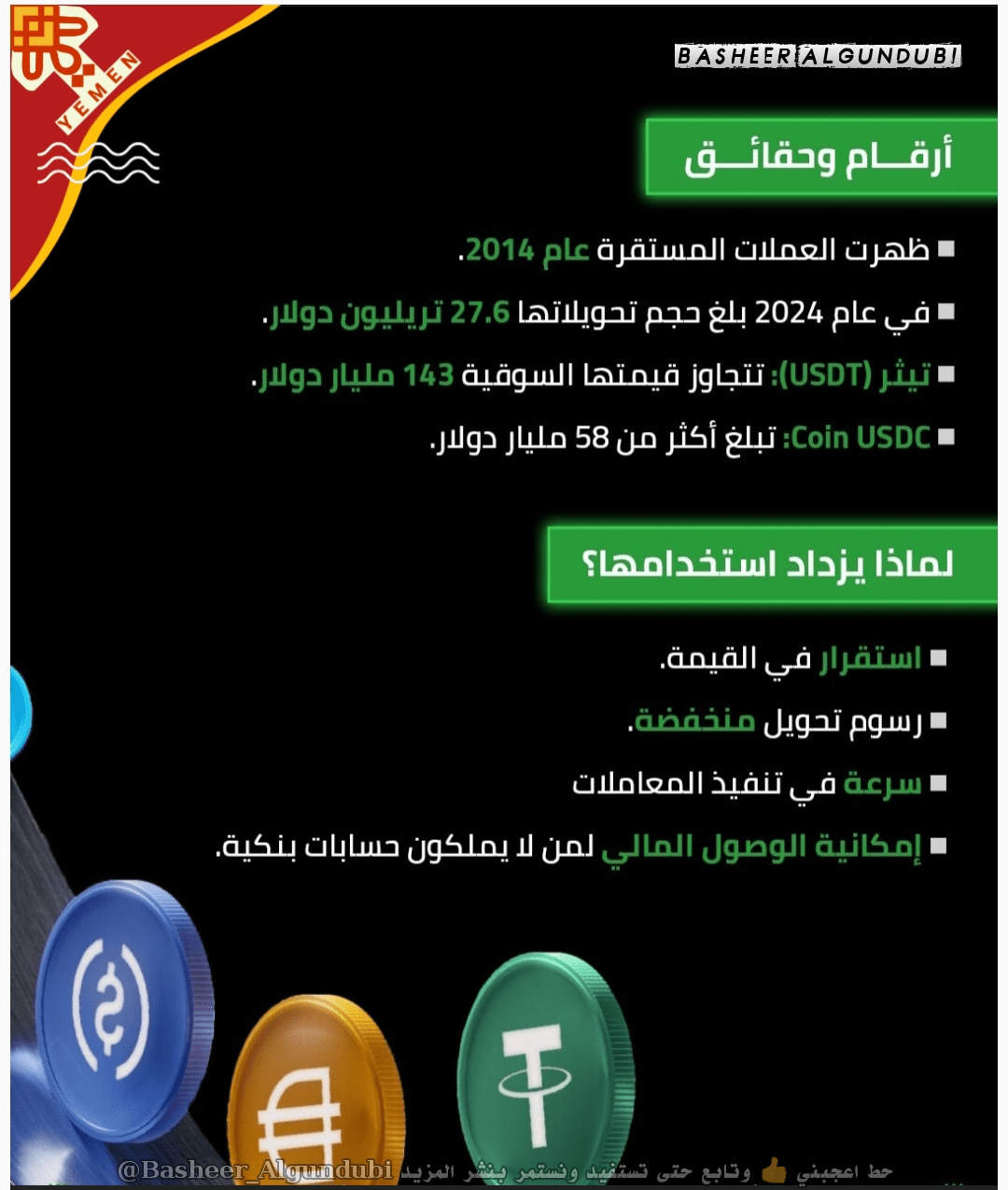
Key challenges:
Lack of transparency in reserve size.
Regulatory concerns regarding protection and oversight.
Potential for use in illegal activities.
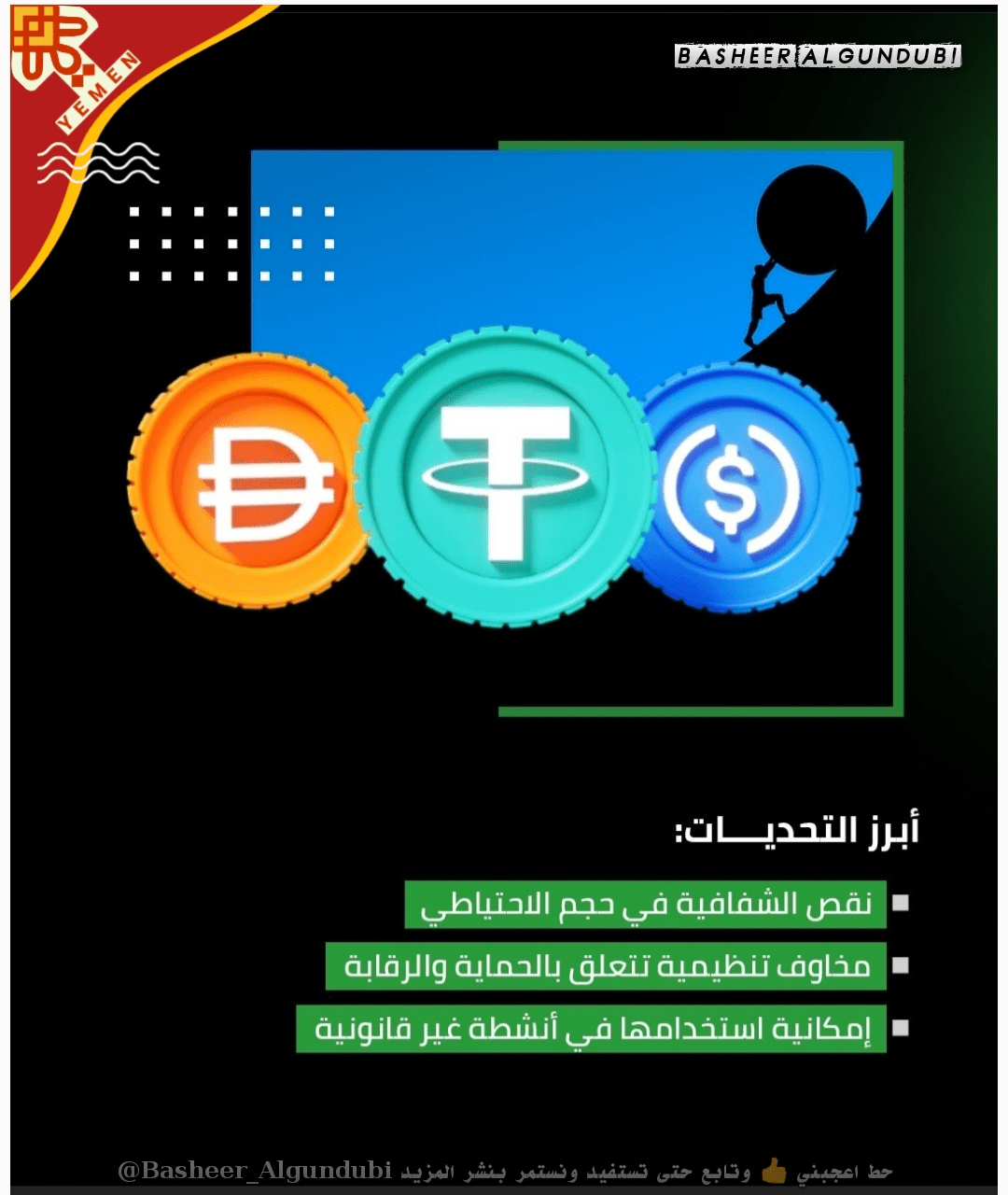
Who is using it now?
Companies like PayPal and Stripe launched stablecoins.
Major banks like Standard Chartered entered the market.
Stablecoins are used in Asia, Europe, and North America.
In the Middle East, AECoin launched the first stablecoin linked to the dirham and licensed by the UAE Central Bank.
In June 2025, the U.S. Senate passed the GENIUS Act to regulate stablecoins.
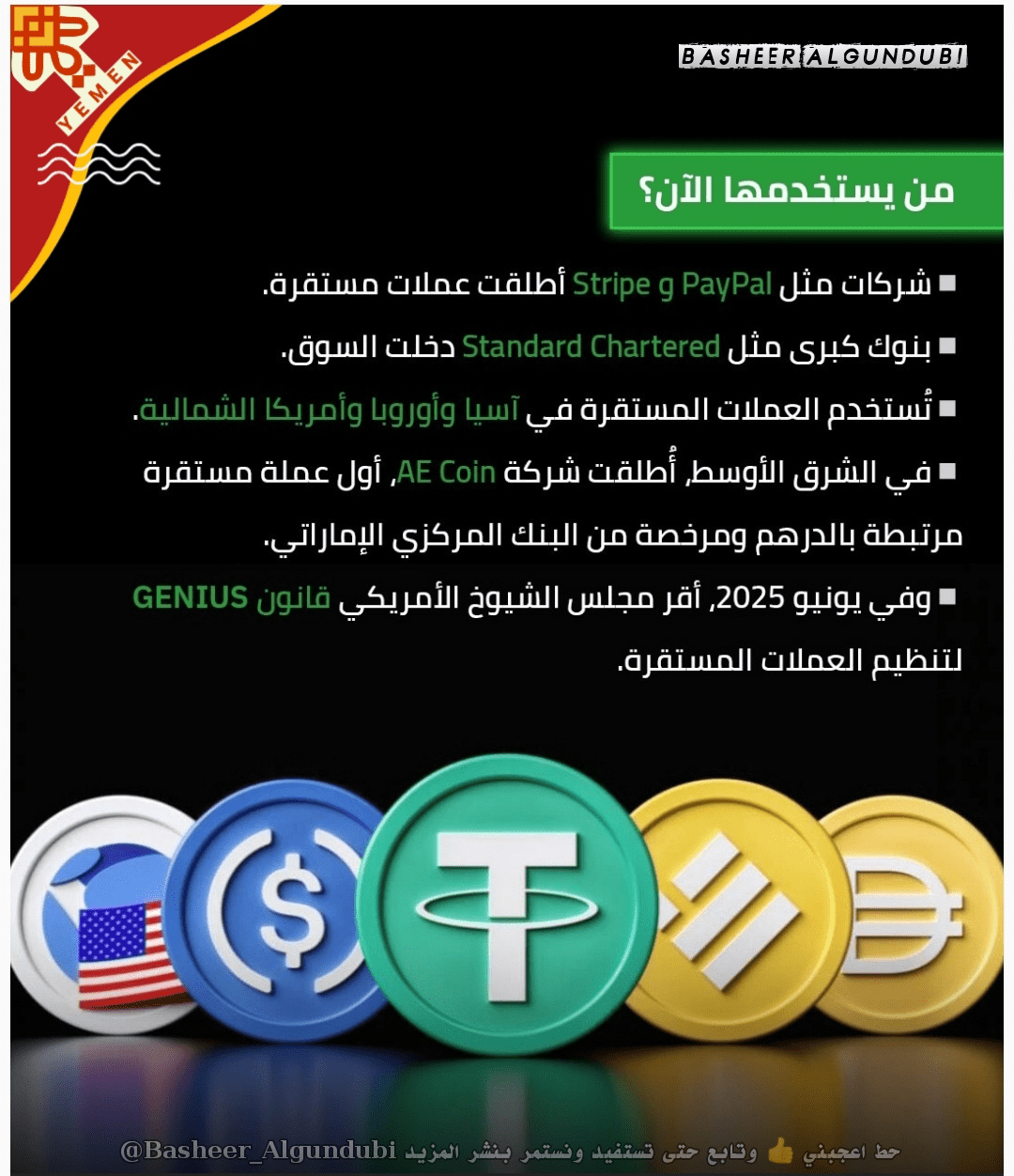
Moreover, U.S. President Donald Trump signed the GENIUS Act for cryptocurrency stablecoins, which regulates the stablecoin market. The U.S. House of Representatives voted 215 to 211 to move forward and later vote on the bill to direct and establish U.S. national cryptocurrency stablecoin innovation (also known as the GENIUS Bill), which would create a regulatory framework for stablecoins. So, what are stablecoins?
*The published content is not investment advice. Financial decisions are your personal responsibility, and we always recommend doing your own research or consulting a specialist before making any investment moves.
$USDC $USDT #ETHBreaks3700 #StablecoinLaw #StrategyBTCPurchase #CryptoMarket4T #BinanceHODLerC

